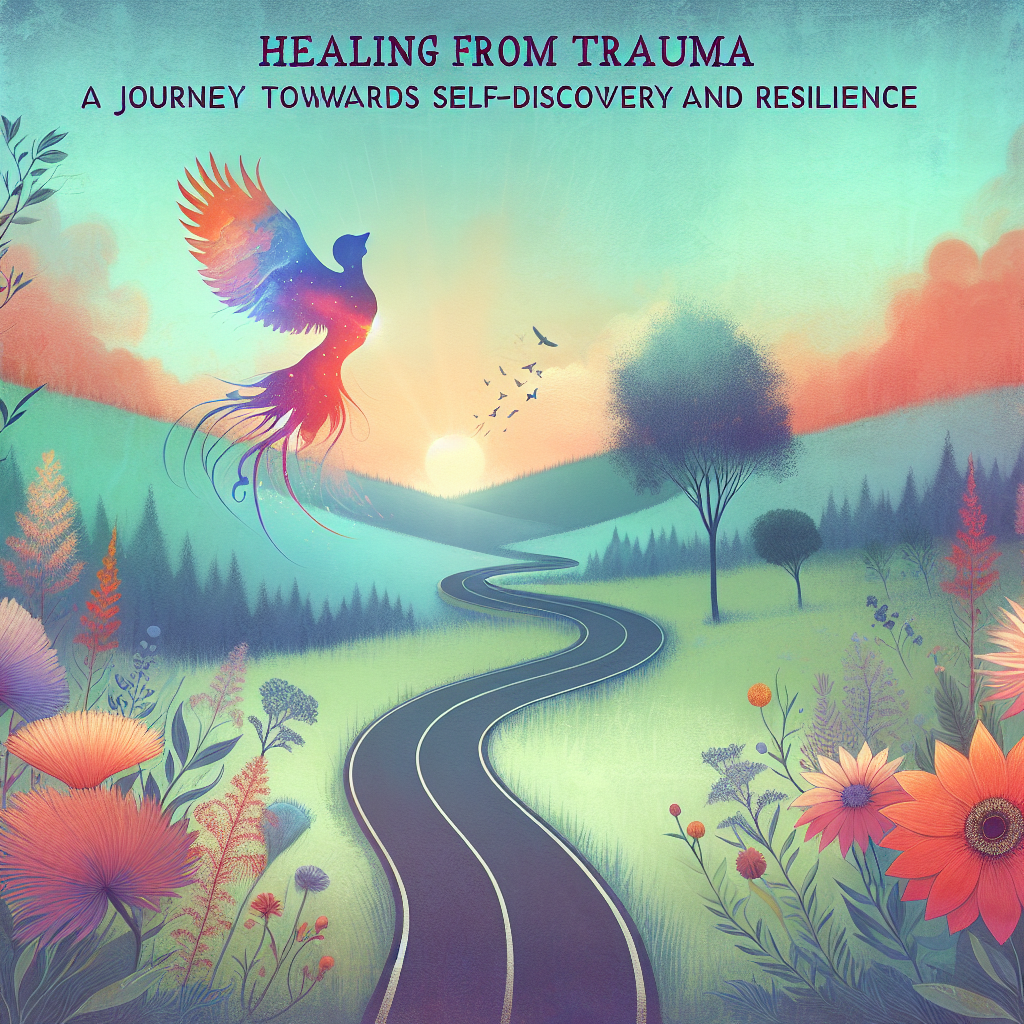Trauma can have a lasting impact on an individual’s mental, emotional, and physical well-being. Whether it stems from a single traumatic event or prolonged exposure to stress and adversity, the effects of trauma can be debilitating and overwhelming. However, healing from trauma is possible with the right support, resources, and tools. It is a journey towards self-discovery and resilience, where individuals can learn to cope with their past experiences, cultivate inner strength, and reclaim their sense of self.
Understanding Trauma
Trauma is defined as a psychological response to a distressing or disturbing event that overwhelms an individual’s ability to cope. It can result from a wide range of experiences, including physical or sexual abuse, natural disasters, accidents, military combat, and other forms of violence. Trauma can also be cumulative, resulting from ongoing exposure to stress, neglect, or toxic relationships.
The impact of trauma can manifest in a variety of ways, including flashbacks, nightmares, anxiety, depression, dissociation, and other symptoms of post-traumatic stress disorder (PTSD). It can also affect an individual’s relationships, work, and overall quality of life. Healing from trauma is a complex and challenging process that requires time, patience, and self-compassion.
The Journey towards Healing
Healing from trauma is not a linear process, but rather a journey filled with ups and downs, setbacks and breakthroughs. It requires courage, vulnerability, and a willingness to confront and process painful emotions and memories. The journey towards healing involves several key components, including self-awareness, self-care, therapy, support from loved ones, and a commitment to personal growth and resilience.
Self-awareness is an essential step in the healing process, as it allows individuals to recognize and acknowledge the impact of trauma on their lives. It involves exploring one’s thoughts, feelings, beliefs, and behaviors, and understanding how they are influenced by past experiences. Through self-awareness, individuals can begin to make sense of their trauma, develop insight into their triggers and coping mechanisms, and work towards healing and transformation.
Self-care is another crucial aspect of healing from trauma, as it involves prioritizing one’s mental, emotional, and physical well-being. Self-care activities can include exercise, mindfulness meditation, healthy eating, journaling, and engaging in hobbies and interests that bring joy and fulfillment. Self-care helps individuals to manage stress, regulate their emotions, and build resilience in the face of adversity.
Therapy is often a key component of healing from trauma, as it provides a safe and supportive space for individuals to explore their past experiences, process their emotions, and develop coping strategies. There are several therapeutic approaches that can be effective in treating trauma, including cognitive-behavioral therapy, EMDR (Eye Movement Desensitization and Reprocessing), somatic experiencing, and mindfulness-based therapy. Therapy can help individuals to work through their trauma, address underlying issues, and build skills for self-regulation and resilience.
Support from loved ones is also essential in the healing process, as it provides validation, empathy, and encouragement for individuals to confront their trauma and work towards healing. Friends, family members, and support groups can offer emotional support, practical assistance, and a sense of connection and belonging. Building healthy relationships and establishing boundaries are key aspects of healing from trauma, as they help individuals to rebuild trust, establish safety, and cultivate resilience.
FAQs
Q: How long does it take to heal from trauma?
A: Healing from trauma is a highly individualized process and can vary greatly from person to person. Some individuals may experience significant improvements in a matter of months, while others may require years of therapy and support to fully recover. It is important to be patient and compassionate with oneself during the healing process and to seek professional help if needed.
Q: Is it possible to heal from trauma without therapy?
A: While therapy can be a highly effective tool in the healing process, there are other ways to cope with and recover from trauma. Self-care activities, such as exercise, mindfulness meditation, art therapy, and support groups, can help individuals to process their trauma and build resilience. However, it is important to seek professional help if symptoms persist or worsen.
Q: Can trauma be fully healed, or is it something that individuals have to live with forever?
A: While the effects of trauma may never fully disappear, individuals can learn to cope with and recover from their past experiences. Healing from trauma involves developing skills for emotion regulation, self-care, and resilience, as well as addressing underlying issues that may contribute to ongoing symptoms. With the right support and resources, individuals can lead fulfilling and meaningful lives after trauma.
Q: What are some self-care activities that can help individuals heal from trauma?
A: Self-care activities that can help individuals heal from trauma include exercise, mindfulness meditation, journaling, engaging in hobbies and interests, spending time in nature, and connecting with loved ones. It is important to experiment with different self-care practices and find what works best for each individual. Self-care is an essential part of healing from trauma, as it helps individuals to regulate their emotions, reduce stress, and build resilience.




Leave A Comment